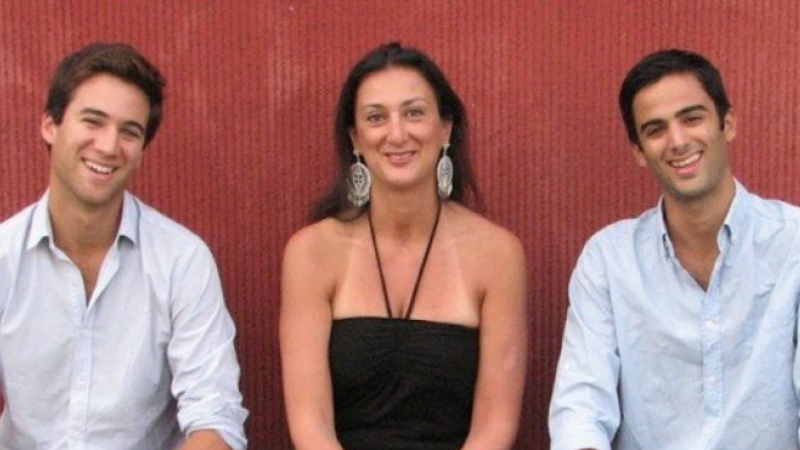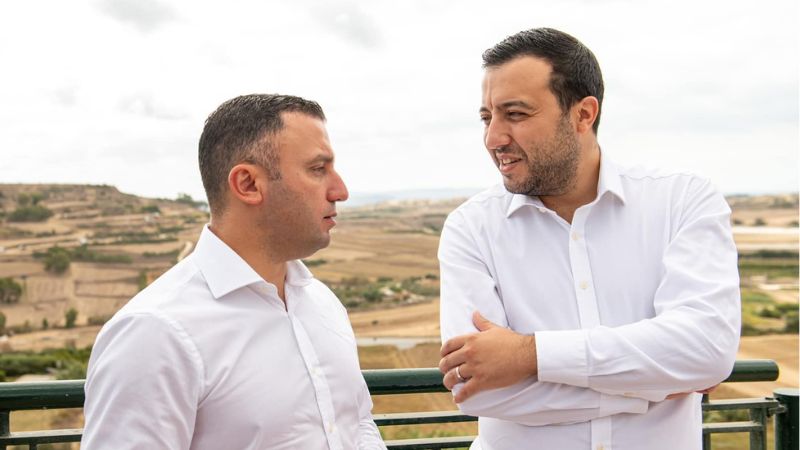Daphne Caruana Galizia’s sons have called for concrete action to be taken at the Global Conference for Media Freedom to be held in London in July, focusing their written evidence on a call for action against SLAPP lawsuits and libel tourism, as well as the need to address Malta’s libel laws.
Matthew, Andrew and Paul Caruana Galizia invite the British High Commission in Malta to seek assurances from the Maltese government that it complies with international obligations on media and press freedoms and the investigation into the assassination of their late mother.
Their written evidence on the rule of law and corruption within Malta was published this week by the UK Parliament Home Affairs Committee in London ahead of the conference scheduled for 10 – 11 July.
Chrystia Freeland, Canadian Minister of Foreign Affairs, and Jeremy Hunt, the UK Foreign Secretary, will co-host the Global Conference for Media Freedom in London. It is part of an international campaign to shine a global spotlight on media freedom and increase the cost to those that are attempting to restrict it. It will bring together global leaders and representatives from the media industry, journalists, civil society and academia.
Caruana Galizia’s sons recommend three actions the Foreign and Commonwealth Office (FCO) can take, firstly by providing the Maltese government with advice on anti-SLAPP threats, Strategic Lawsuits Against Public Participation. The media in Malta has been repeatedly hit by these financially-crippling lawsuits by those closest to the government, resulting in the altering of the record as newsrooms had to take down stories on corruption by those involved.
This process was used extensively in Malta to obstruct investigative reporting of Pilatus Bank, with legal threats from London solicitors, including Schillings, who also act for government officials in Malta. The Iranian-owned bank was forced to close and the owner, Ali Sadr Hasheminejad, is facing 125 years in a US prison on charges of evading sanctions, money laundering and funding terrorism.
Second, Caruana Galizia’s sons ask the FCO to acknowledge that in London there are management firms that are partaking in libel tourism on behalf of plaintiffs, adding “it is unjust to threaten freelance journalists in jurisdictions like Malta, where their coverage is of Maltese actors, with financially crippling libel action in England and Wales”.
Third, the FCO can advise the Maltese government on how to reform Malta’s outdated libel laws, which mean plaintiffs can file lawsuits at a small financial cost and face no repercussions for the harassment of journalists. Tourism Minister Konrad Mizzi – the only EU Minister to have been exposed in the Panama Papers – pursued libel cases against journalists reporting on his affairs in Panama and Dubai only to withdraw the cases before judgment after journalists spent two years providing evidence before the courts.
Evidence submitted to the FCO by Matthew, Andrew and Paul mention that corruption is a major and growing threat to global media freedom.
They cite an ongoing media climate in crisis in Malta. Their submission refers to an alarming problem of disinformation, adding that “The Shift News has launched a counter-disinformation campaign and rely solely on donations from readers”.
The statement lists investigations and official reports from the European Parliament, the Council of Europe, GRECO, and international organisations that together present the “paralysis” of the country’s legal system and government institutions, “failures in the rule of law”, and an increasing threat to freedom of speech and the independent media.
They cite the commitment from the UK Foreign Office statement in 2018 to ensure the safety of journalists and the free press because: “hard evidence shows a striking overlap between the countries with the least corruption and the countries with the freest media”.
The Caruana Galizia brothers warn Malta is not a safe climate for journalists working on corruption, and the country has fallen sharply in press freedoms rankings and now has the third lowest ranking in Europe, following Hungary and Bulgaria.
The statement warns that corruption in Malta is now spreading across Member States: “Our evidence shows that when law enforcement and democratic checks get to the point that they have in Malta, journalists become the last people left standing between the rule of law and those who seek to violate it. Their work becomes more dangerous and its impact is diminished with worrying implications for global media freedom and global corruption.”
The Maltese government was among the first to respond to the call for the global conference, leading British MPs to state that it was a sign of the Maltese government’s commitment to press freedom. It is an immediate example of how such conferences can serve to undermine their scope, and serve as nothing more than a PR exercise for those who are responsible for the problem.
You can read the full submission by Matthew, Paul and Andrew here.












